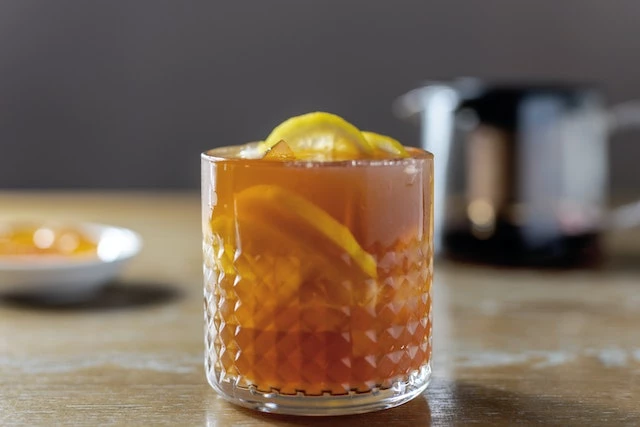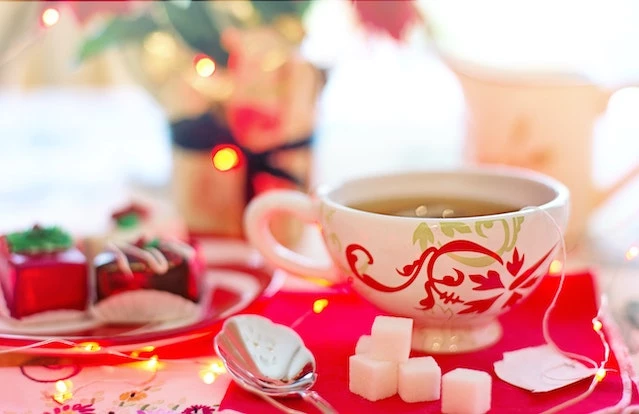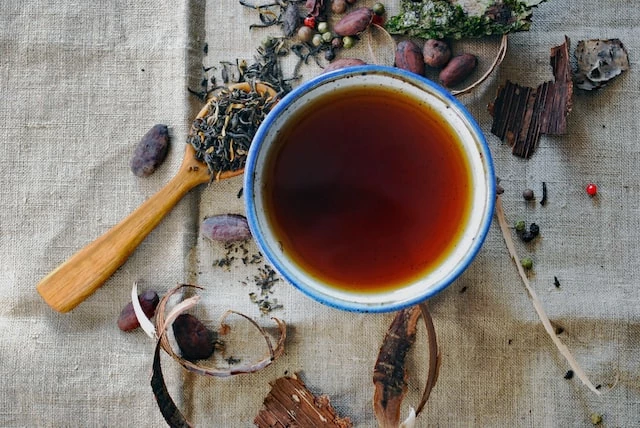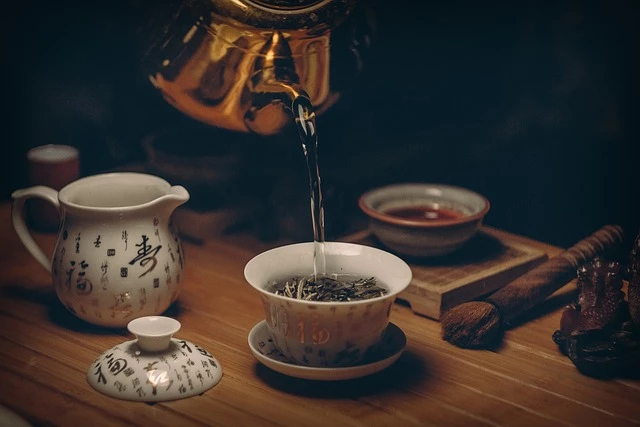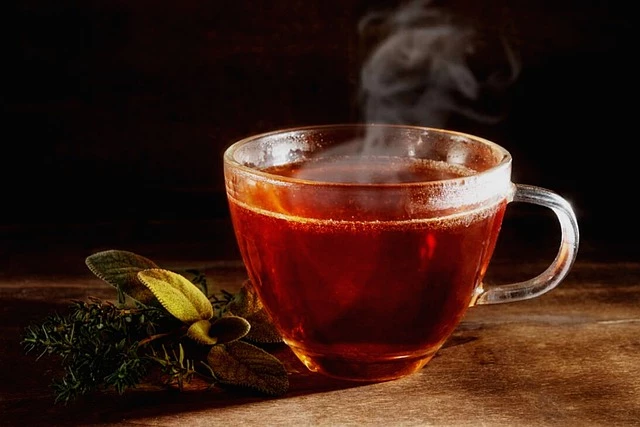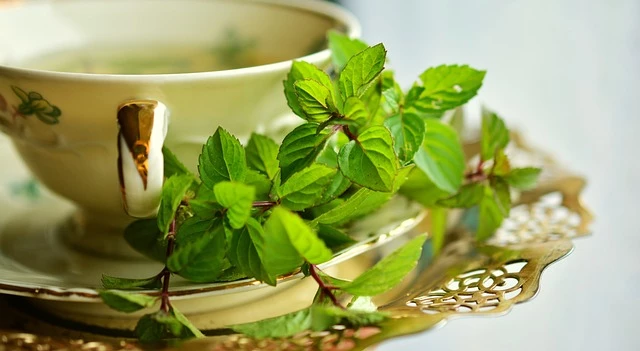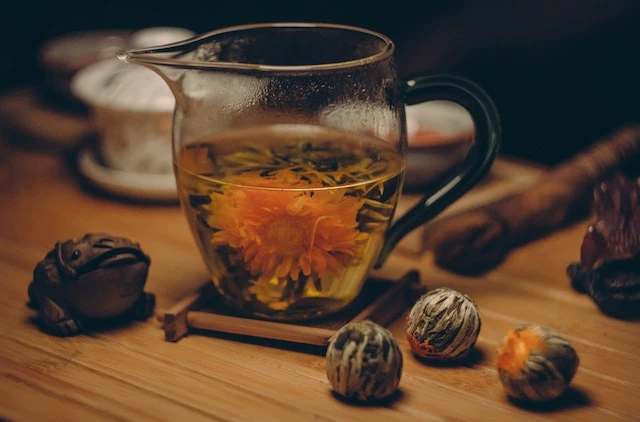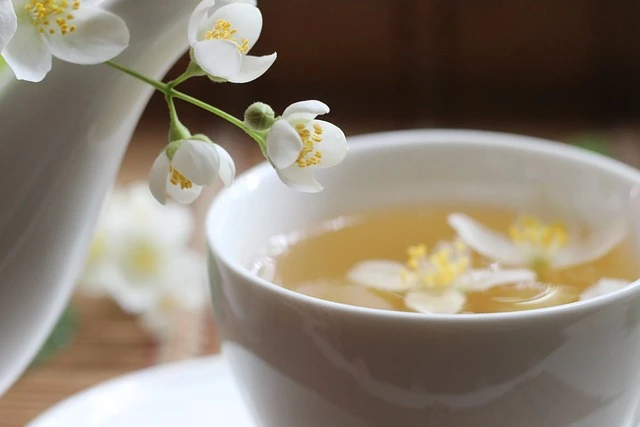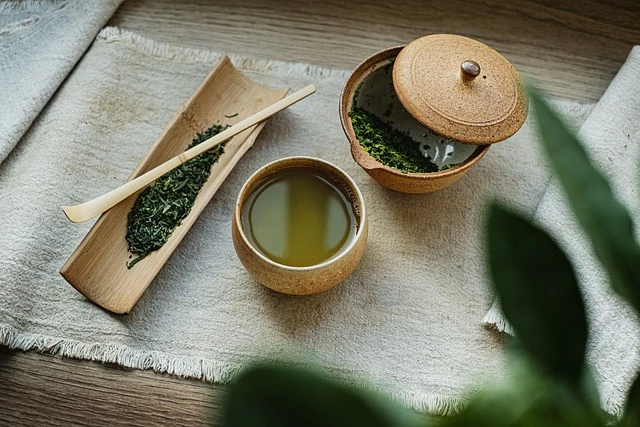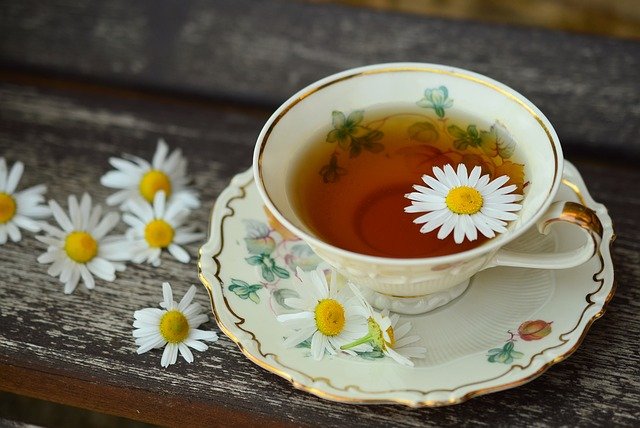Does Black Tea Have Caffeine?
Jan 13 2023 Tea Caffeine Content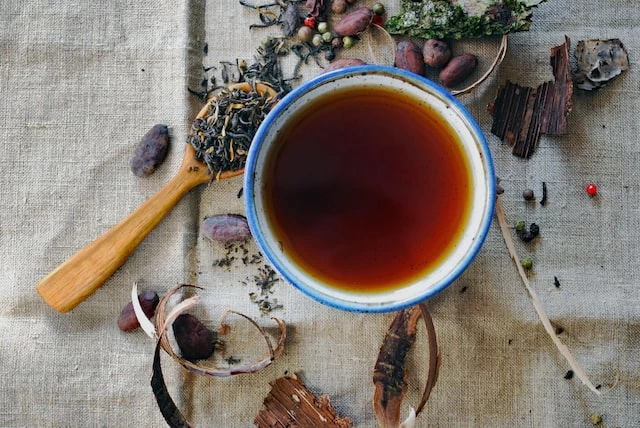
Black tea may be a prevalent refreshment delighted in by numerous individuals around the world, known for its wealthy flavor and smell. One of the notable ingredients found in black tea is caffeine, which could be a stimulant that helps increase alertness and energy. The amount of caffeine in black tea can shift depending on the particular sort of tea, the brewing time, and the amount of tea utilized. In spite of its caffeine substance, numerous individuals still select dark tea as their go-to refreshment, especially in the morning or during the day to liven up their vitality level without feeling as well jumpy.
A few benefits of black tea are lessening the chance of heart illness, bringing down blood weight, moving forward mental sharpness, decreasing stretch, and moving forward absorption. It too contains tall levels of cancer prevention agents, which can offer assistance to ensure the body from harm caused by free radicals and may have antimicrobial properties. Check out all the black teas.
How Much Caffeine is in Black Tea?
So, yes black tea does contain caffeine, however, the amount of caffeine in black tea can vary depending on a number of factors, such as the specific type of tea, the brewing time, the temperature of the water, and the amount of tea used.
On average, an 8-ounce (240-ml) serving of black tea contains around 20–90 mg of caffeine. Be that as it may, it can be on the lower or higher side than this extent. It’s worth noticing that the genuine sum of caffeine in a container of tea can be influenced by variables such as the way the tea clears out been handled, the root of the tea, and the brewing strategy. For illustration, tea takes off that has been aged for a longer period of time recently being dried will contain more caffeine than tea takes off that have been matured for a shorter period of time.
Tea takes off from Assam and Darjeeling, districts in India, for the most part, contain more caffeine compared to Chinese or Japanese tea leaves. Additionally, a tea mix that contains a better extent of tea taken off from Assam or Darjeeling will contain more caffeine than a mix that contains more Chinese or Japanese tea clears out.
The caffeine substance in black tea can shift broadly depending on the variables specified, and it is critical to get it that a cup of black tea can have an extension of caffeine substance from 20-90mg.
Can Black Tea Be Bad for You?
The impacts of caffeine can shift depending on the person and their affectability to the stimulant. In direct dosages, caffeine can have positive impacts such as expanded sharpness, moved-forward disposition, and expanded physical execution. In any case, intemperate caffeine admissions can have negative impacts such as jitteriness, sleep deprivation, and an expanded hazard of heart illness.
The moderate amount of caffeine displayed in black tea, around 40-60mg per 8-ounce glass, can have positive impacts on cognitive work, short-term memory, and disposition in solid grown-ups, since it can offer assistance to extend alertness and vitality, especially within the morning or amid the day when individuals tend to feel tired. Furthermore, black tea moreover contains cancer prevention agents, which can offer assistance to ensure the body from harm caused by free radicals.
In any case, It’s vital to note that devouring a tall sum of caffeine or expending it at an unseemly time such as well near sleep time can have negative impacts on rest. As well as for people who are touchy to caffeine, pregnant women and individuals with certain therapeutic conditions ought to restrain their caffeine admissions, this incorporates individuals with heart conditions, tall blood weight, uneasiness clutter, and other restorative conditions that are touchy to caffeine.
The caffeine in black tea is by and large considered secure in direct sums and can have positive impacts on disposition and cognitive work, but it’s vital to be careful of the sum you expend and the time of utilization, especially on the off chance that you’re delicate to caffeine or have certain therapeutic conditions.
How to avoid Caffeine in Black Tea?
If you want to avoid caffeine in black tea, there are several options you can try:
Switch to decaffeinated black tea
Many brands now offer decaffeinated versions of black tea. This is a great option if you still want to enjoy the flavor of black tea, but without the caffeine.
Reduce the brewing time
The longer you brew black tea, the more caffeine is extracted from the leaves. By reducing the brewing time, you can reduce the amount of caffeine in your tea.
Use fewer tea leaves
Using fewer tea leaves when brewing your tea will also reduce the amount of caffeine in the final product.
Brew your tea with cold water
Cold water extracts less caffeine than hot water, so brewing your tea with cold water will also help to reduce the amount of caffeine in your tea.
Try other caffeine-free teas
There are many different types of caffeine-free teas such as herbal tea, chamomile, lemon balm, and mint tea. You can experiment with different types of tea to find a flavor that you like.
Drink tea blends with caffeine-free ingredients
Some tea blends mix black tea with caffeine-free ingredients such as fruits and herbs, which can help to reduce the overall caffeine content in the tea.
Try reducing your overall intake of caffeine
If you find it hard to completely avoid caffeine you can try to reduce your overall intake of caffeine by drinking your black tea earlier in the day and also by limiting or avoiding other sources of caffeine, like coffee, energy drinks, or chocolate.
Ultimately, it’s important to understand that the method that works best for you will depend on your individual preferences, and it may take some experimentation to find a solution that works for you.
How Long Does Black Tea Caffeine Last?
The length of time that caffeine keeps going within the body can change depending on a number of components, counting an individual’s age, weight, sex, genetics, and overall well-being. Be that as it may, in common, it takes around 45 minutes to 1 hour for caffeine to require impact after it’s expended, and its impacts ordinarily final between 3-5 hours.
It’s worth noticing that numerous variables can impact how long caffeine endures in your framework, such as your by and large well-being, how much caffeine you’ve expended, and how rapidly your body metabolizes caffeine. Individuals with certain restorative conditions, such as uneasiness disarranges or rest disorders, should be especially cautious almost expending caffeine because it can disturb side effects.
Some studies suggest that for most solid grown-ups devouring a moderate amount of caffeine, approximately 200mg per day, the half-life of caffeine is almost 3-5 hours, meaning it would take almost 3-5 hours for half the caffeine consumed to be eliminated from the body. The other half is disposed of within the following 3-5 hours.
It’s too imperative to note that, a few individuals are more delicate to caffeine than others, and may involve its impacts for a shorter or longer period of time. Also, drinking alcohol, smoking, or taking certain solutions can moderate the digestion system of caffeine and drag out its impacts.
It’s best to test to discover how your body responds to caffeine and alter your admissions appropriately, and also, if you’re delicate to caffeine, or if you have got any medical condition, it’s a great thought to check along with your specialist time recently devouring caffeine, counting black tea, to create beyond any doubt it’s secure for you.
Which Type of Black Tea has the Most Caffeine?
There are many types of black tea available in the market. Learn more about the best types of black tea. The type of black teas that has the most caffeine content are:
Assam Tea
Assam tea is grown in the Assam region of India and is known for its strong, malty flavor and high caffeine content. On average, Assam tea contains about 40-60mg of caffeine per 8-ounce cup.
Darjeeling Tea
Darjeeling tea is grown in the Darjeeling region of India, known for its unique and complex flavor profile, it also has a high caffeine content, similar to Assam teas, around 40-60mg per 8-ounce cup.
Ceylon Tea
Ceylon tea is grown in Sri Lanka and is known for its robust and full-bodied flavor, also it tends to have a high caffeine content similar to Assam and Darjeeling teas, around 40-60mg per 8-ounce cup.
Chinese Black Teas
Chinese black teas vary in their caffeine content, depending on the specific tea and the way it’s grown, processed, and brewed. For example, Keemun tea, one of the most famous Chinese black teas, is considered to have a moderate caffeine content, around 30-50mg per 8-ounce cup.
Lapsang Souchong
Is a black tea that has been dried over pine fires, it is grown in China and is known for its smoky flavor. It has a moderate caffeine content, around 30-50mg per 8-ounce cup.
Does Black Tea Have More Caffeine Than Coffee?
On average, black tea contains less caffeine than coffee. A normal 8-ounce (240-ml) serving of brewed black tea contains approximately 20–90 mg of caffeine, whereas an 8-ounce (240-ml) glass of brewed coffee contains approximately 95mg of caffeine. Be that as it may, it’s worth noticing that the genuine caffeine substance in any sort of tea or coffee can shift depending on a number of variables, such as the particular sort of tea or coffee, the brewing strategy, and the way the beans or clears out were developed, handled, and reviled.
Also, the caffeine substance of a drink can moreover depend on the number of takes off or beans utilized. For occasion, a solid container of coffee or tea, utilizing more clear out or beans will contain more caffeine than a weaker glass utilizing less. So, it’s continuously great to check the name of the item or inquire the merchant about the precise caffeine substance.
On average black tea contains less caffeine than coffee, but depending on the variables specified, the caffeine substance in a container of tea or coffee can shift.
Does Black Tea Have More Caffeine Than Green Tea?
Black tea contains more caffeine than green tea. Black tea clears out are matured sometime recently they are dried, with a handle that increments the caffeine substance, whereas green tea takes off is steamed or pan-fried, which makes a difference to protect the leaves’ normal caffeine substance.
A commonplace 8-ounce (240-ml) serving of brewed black tea contains almost 20–90 mg of caffeine, whereas an 8-ounce (240-ml) serving of green tea contains almost 20-45 mg of caffeine. In any case, it’s worth noticing that the real caffeine substance in any sort of tea can change depending on a number of variables, such as the particular sort of tea, the brewing strategy, and the way the clears out were developed, handled, and reviled.
Black tea by and large contains more caffeine than green tea, but depending on the variables specified, the caffeine substance in a container of tea can change. So, on the off chance that you’re seeking a low-caffeine tea option, green tea could be a great alternative and in the event that you’re trying to find a better caffeine substance black tea will have more.
The Final Thoughts
In conclusion, black tea does contain caffeine, which may be a stimulant that can increment sharpness and vitality, it is additionally known for its wealthy flavor and smell. The amount of caffeine in black tea can shift depending on the particular sort of tea, the brewing time, and the amount of tea utilized, but on normal, an 8-ounce glass contains around 20-90mg of caffeine, which is less than the amount of caffeine found in a glass of coffee. It’s imperative to expend it in moderation and be careful of the time of utilization, especially in the event that you’re touchy to caffeine or have certain restorative conditions, counsel with a specialist.
Also, read our other articles about caffeine content!
Does Tea Have Caffeine?
Does Green Tea Have Caffeine?
Does Herbal Tea Have Caffeine?
Does White Tea Have Caffeine?
Does Rooibos Tea Have Caffeine?
Does Oolong Tea Have Caffeine?
Does Pu erh Tea Have Caffeine?
Does Sweet Tea Have Caffeine?
Does Iced Tea Have Caffeine?
Does Yerba Tea Have Caffeine?
Caffeine in Tea vs Coffee
